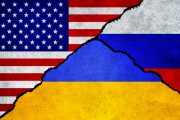
A recent poll reveals a majority of Americans oppose giving President Obama the power to make an end run around the Constitution by “fast tracking” the Trans-Pacific Partnership (TPP).
In a press release issued by Communications Workers of America, survey results indicate that 62 percent of respondents totally oppose “having Congress give the president fast-track authority [aka Trade Promotion Authority] for a new Pacific trade agreement.”
One of the questions asked by pollsters Hart Research and Chesapeake Beach Consulting accurately explained that if the president were given this authority, “Once the administration’s negotiations are completed, Congress must take an up-or-down vote on the agreement as a whole, and could not make any amendments or changes in the agreement.”
Given the myriad difficulties dogging negotiators from the 12 countries currently included in the trade pact region, blocking the granting of such sweeping power is critical.
Additionally, in light of significant bipartisan opposition to the agreement, it would seem that only President Obama can close the deal on the Trans-Pacific Partnership. Part of that includes persuading Congress to “fast track” negotiation of the TPP, in the form of a Trade Promotion Authority (TPA) bill.
The TPA is a tool that the president demands be in the U.S. trade representative’s bag when he sits down with his colleagues from the other TPP participants. Forbes reports:
TPA or “fast track” is essential for the President to complete negotiations. Negotiators for our trading partners would be foolish to sign off on a treaty unless they knew that the Congress could not amend it.
And:
A TPA bill would allow the Trans Pacific Partnership Treaty, said to be in its final stages, to be completed and ratified. In addition to its trade and economic benefits, TPP is the most prominent piece of the Obama “pivot to Asia,” his attempt to exercise more leadership in the area. TPP is supposed to lead the region to our version of open, reciprocal trade rather than have the region move toward the Chinese mercantilist model.
That would be a little more believable were it not for the fact that the president himself has entertained the inclusion of China in the TPP.
As The New American reported, President Obama has signaled that he would entertain the idea of the Chinese communist government’s partnership in the bloc.
President Obama’s fascination with intertwining the economic welfare of the United States with that of China is perhaps one reason one commentator called the TPP “another disaster from a proven liar.”
Perhaps it is this sinister ulterior motive that prompts the president to doggedly protect the secrecy surrounding the drafting of the TPP treaty.
In spite of strident efforts on the part of all TPP partners to keep the deal hidden, in November 2013, portions of the TPP draft agreement published by WikiLeaks contained sketches of President Obama’s plans to surrender American sovereignty to international tribunals.
Another WikiLeaks disclosure in January of this year revealed that the president was attempting to surrender sovereignty over U.S. environmental policy to international bureaucrats interested in lowering those standards to mirror those of our TPP partner nations.
U.S. copyright laws, Internet freedom, and Web-based publishing would also be obliterated by the TPP, and, although it hasn’t been widely reported, the TPP would give the developing global government sweeping surveillance powers, as well.
Although the American people (and the people of all nations involved in the pact) are prevented from seeing — and therefore commenting on — the treaty being ostensibly negotiated on their behalf, multinational corporations have seats at the trading table.
While the TPP grants corporate giants such as Walmart and Monsanto the power to bypass Congress and the courts, the elected representatives of the American people are kept from even seeing the draft version of the agreement.
As with the multitude of similar trade pacts the United States has formed, the ultimate aim of the TPP is the creation of a regional super government — thus the stonewalling of federal lawmakers who dare seek to assert some sort of oversight.
In the case of the TPP, the zone would be called the Free Trade Area of the Asia Pacific (FTAAP). Members of the proposed “free trade” bloc include all the current TPP participants: Malaysia, Singapore, Japan, Vietnam, Brunei, Australia, New Zealand, Peru, Mexico, Chile, Canada, and the United States. The regional trading partnership is intended to establish “a comprehensive free trade agreement across the region.”
The ultimate goal of the TPP isn’t just the creation of an FTAAP, though. Supporters of the deal insist that the TPP is a “trade agreement designed to achieve broad liberalization and a high degree of economic integration among the parties.”
Integration is a word that is painful to the ears of constitutionalists and those unwilling to surrender U.S. sovereignty to a committee of globalists who are unelected by the American people and unaccountable to them. Integration is an internationalist tool for subordinating American law to the globalist bureaucracy at the United Nations.
Economic and political integration will push the once-independent United States of America into yet another collectivist bloc that will facilitate the complete dissolution of our country and our states into no more than subordinate outposts of a one-world government.
If constitutionalists and other parties interested in keeping the power of enacting trade, manufacturing, and environmental laws at home as mandated in the Constitution, perhaps the next poll will show an impressive increase in the number of Americans ready to reject President Obama’s effort to shove the secret surrender of sovereignty down our throats.
Joe A. Wolverton, II, J.D. is a correspondent for The New American and travels nationwide speaking on nullification, the Second Amendment, the surveillance state, and other constitutional issues. Follow him on Twitter @TNAJoeWolverton and he can be reached at [email protected].

